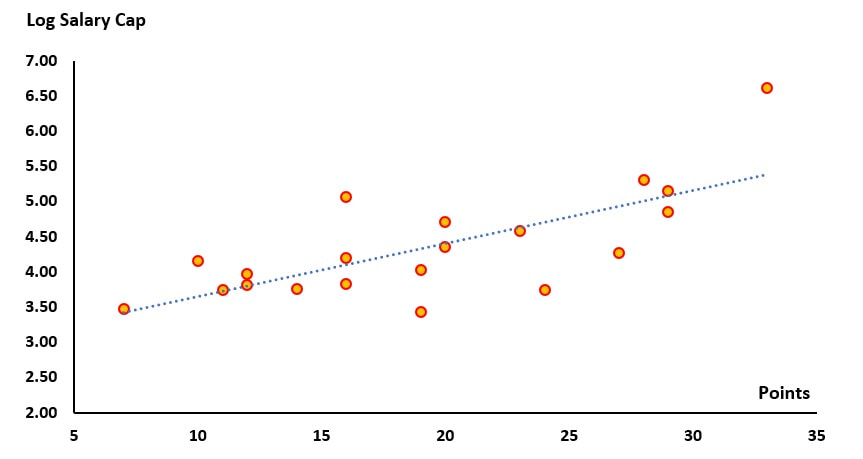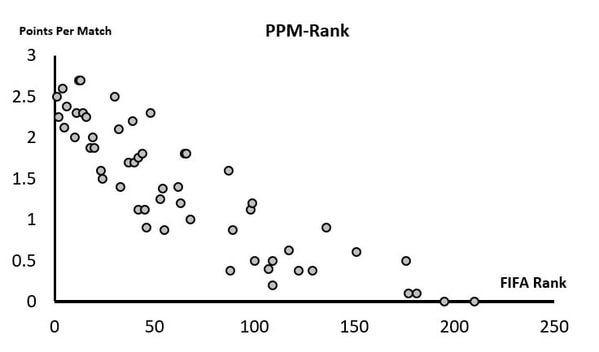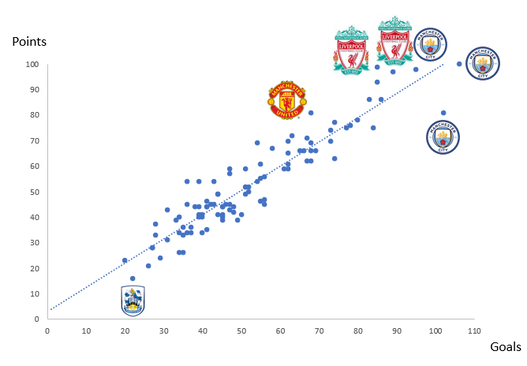Recently the 21/22 salary caps for La Liga became public knowledge. The most interesting insight was probably the gap between Real Madrid (1st) and Barcelona (7th) - Real Madrid now have a salary cap about seven and a half times bigger than that of their great rival. Real can dedicate a whopping €739m to salary payments.
It's my understanding that no more than 70% of revenue generated can be spent on salary, but I think there are ways to work around this by strategically managing debt. As these limits are generally based on turnovers though, these data lay bare the dire financial state at Barcelona.
After only 14/15 matches we are starting to see the almost universal relationship between wage spend and output/points accrued come about (R² =.52). Below plots the wage spend (log) against points for this La Liga season.
Will Real Madrid win the league? Based on their wage budget they should. Indeed, they can spend more than €500m in excess of the second highest budget in La Liga – Sevilla – at €200m.



 RSS Feed
RSS Feed